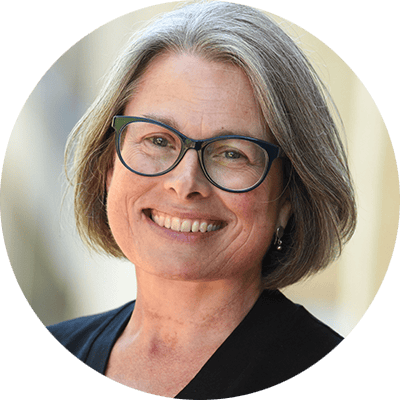The Adelaide International Bird Sanctuary, a windswept expanse of mangroves and saltmarsh that stretches across 12,400 hectares in the upper Gulf St Vincent, represents an important, unusual and fragile coastal ecosystem – unlovely to some eyes, but Professor Beverley Clarke respects it as a special and precious natural resource.
A geographer, Professor Clarke has built a strong affinity with this area since she started teaching coastal studies at Flinders University 20 years ago, bringing students to examine and understand its importance. Now, she is a key part of a team working to rehabilitate this coastal ecology and measure its value as an important carbon sink in the emerging blue carbon conversation.
Blue carbon, a term introduced globally in 2009, refers to the natural carbon sequestration in coastal and marine ecosystems. By restoring and increasing the area of blue carbon ecosystems, carbon is captured and stored, representing a nature-based solution to mitigate climate change. However, when these ecosystems are degraded, lost or converted to other land uses, the large stores of blue carbon are exposed and released as CO2 into the atmosphere.
South Australia holds an estimated 1.12 million hectares of blue carbon ecosystems (more than 7% of Australia’s blue carbon habitat) with seagrass beds accounting for 96%, and tidal saltmarsh and mangrove comprising about 2% each, although these areas – which includes the Adelaide International Bird Sanctuary – hold much higher carbon storage per hectare.
People’s perceptions and appreciation of these coastal areas play an important role in their preservation and protection, which is a focus of Professor Clarke’s studies. She has surveyed how residents connect with and rate the attributes of Adelaide’s northern metropolitan coastal wetlands, from Torrens Island to Thompson Beach – which showed that recipients identify the region as important for their personal wellbeing, adding weight to the call for closer controls on further development and enhanced protection of these important community spaces.
“Social and cultural values are very difficult to put a dollar value on, but they are important attributes to measure, along with ecological and scientific components, for shaping future policies on coastal restoration and protection,” says Professor Clarke.
Now, Professor Clarke will work with a team led by Flinders University colleague Professor Sabine Dittmann, a marine biologist, to conduct a key South Australian coastal restoration project that will serve as a demonstration site to apply Environmental Economic Accounting as part of the Australian Government’s Department of Climate Change, Energy, the Environment and Water (DCCEEW) Blue Carbon Conservation, Restoration and Accounting Program.
Within this program, in 2022, Professors Clarke and Dittmann joined other partners to obtain a $2.9 million, four-year Blue Carbon Ecosystem Restoration Grant to restore tidal saltmarsh ecosystems including sections of the Adelaide International Bird Sanctuary, and to enhance understanding by the community of the importance of coastal wetlands for their ecosystem services.
In May 2023, Professors Clarke and Dittmann led another multidisciplinary partnership that received an additional $1 million through this DCCEEW program to measure the benefits of blue carbon ecosystems to climate, biodiversity and people, along with measuring the value of restoring blue carbon sites.
While these project outcomes will help inform better investment, policy and management decisions in restoring coastal ecosystems, Professor Clarke also recognises that the public’s relationship to coastal areas is vitally important to ensure the effective management and protection of our coasts.
“Public perception and engagement provide insight and help shine a light on what matters to people – and this is essential to achieve mutually acceptable outcomes. Therefore, we will be examining whether people’s affection for an area affects their knowledge and care for a particular environment.”
Professor Clarke says there is a strong need to understand and measure the limits of human interaction in such fragile areas – noting that people are “loving these environments to death”, especially in popular 4WD areas and heavily-frequented recreational fishing locales.
The coastal restoration project will continue to 2025, with the aim of attracting external investment into blue carbon environments – and for that money to fund further coastal restoration work. Professor Clarke is also confident the project will help develop practical and cost-effective ways to measure a range of services and benefits provided by coastal blue carbon ecosystems.
Professor Clarke believes that building awareness about the social benefits of restoring under-appreciated mangroves and wetlands may help generate broader support for protecting rather than developing these threatened landscapes.
“People value these places as they become familiar with them,” she says. “Their affinity for the region adds powerful reasons for them to take good care of these precious resources, and that is a value worth measuring.”
“Social and cultural values are very difficult to put a dollar value on, but they are important attributes to measure, along with ecological and scientific components.”
Download your free copy of Fearless Research
![]()
Sturt Rd, Bedford Park
South Australia 5042
South Australia | Northern Territory
Global | Online
CRICOS Provider: 00114A TEQSA Provider ID: PRV12097 TEQSA category: Australian University










